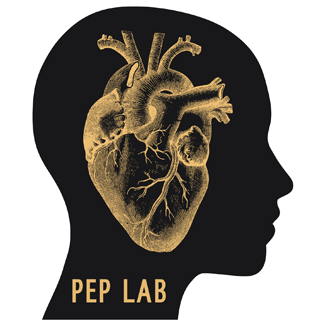Buff Bulletin Board
The Buff Bulletin Board, a listing of campus announcements, is a service of Campus Communications.
Study of hearing aid sound perception
Adults needed for paid study on tobacco smoking, auditory function
For parents: Paid research study for children on hearing
For parents: Paid research study for children on noise and reading
For parents: Paid research study for children on noise and reading
Participate in a paid study on mood and emotion

For parents: Paid research study on children and hearing
For parents: Cognitive Development Center offers fun research projects for kids
Adults needed for a hearing research study
Adults needed for study on tobacco smoking, auditory function
Paid experiments: Psychology department
The CU Boulder psychology department is looking for participants for experiments about learning, memory, perception and language.
- Pays up to $15 per hour
- Must be 18-29 years old
- Must be right handed
Visit this website for more information.
Paid study: Western style diet

We are looking for volunteers for a study investigating the effects of eating a Western style diet on health and physiological function.
We are looking for men and women, aged 18 to 29 or 60 to 79, who currently are performing regular aerobic exercise OR who do not exercise, and who are willing to undergo seven days of high-fat diet controlled feeding (all meals provided) and seven days of low fat diet feeding with a washout in between.
Participants will receive:
- Physical exam
- Complete blood panel-blood sugar and cholesterol
- Exercise stress test (>60 years only)
- Aerobic capacity (VO2 max)
- Blood pressure screening
- DEXA body composition scan (only if meeting all study requirements)
Participants will receive monetary compensation in the form of a check for their time.
Final call for papers: GRSG Oil and Gas Workshop July 11–12
The North American chapter of the Geological Remote Sensing Group (GRSG), in collaboration with CU Boulder and the U.S. Geological Survey, will be holding a workshop in Boulder July 11–12 focused on the applications of remote sensing to the oil and gas industry.
The workshop organizing committee is now seeking contributions from industry professionals, suppliers and vendors, academics and government officials concerning the applications of remote sensing across the full lifecycle of oil and gas projects. Please submit abstracts here by Friday, May 18.
Organizers are seeking contributions on the applications of remote sensing across the oil and gas project life-cycle such as:
Oil and gas exploration using remote sensing
- Offshore oil seep mapping using SAR
- Onshore seep detection using multispectral and hyperspectral data
- Geological mapping using state of the remote sensing data and products
- Exploration planning and HSE risk reduction using remote sensing products, e.g., seismic planning
- Proximal sensing, e.g., hyperspectral core scanning
Applications of remote sensing to project planning and development
- Remote sensing for determining environmental and social baseline and impact assessment, e.g., LULC mapping using satellite spectral data
- Remote sensing for monitoring the environmental impacts during the development phase of projects, e.g., monitoring ocean turbidity during dredging
- Satellite and aerial elevation mapping for project planning and monitoring development
Metocean applications of remote sensing for project planning, during operations of offshore assets
- Monitoring sea state and currents
- Ice monitoring in polar environments
Environmental monitoring applications of remote sensing during operations
- Gas monitoring, including methane and other gases, to detect leaks and minimize the environmental impact of O&G operations
- Mapping/monitoring of the environmental physical footprint, e.g., LULC mapping using satellite spectral data and monitoring wildlife using drone remote sensing
- Monitoring of the broader impacts of oil and gas activities from the regional to global scale, e.g., flare monitoring using satellite nighttime lights data
- Wildlife monitoring, e.g., use of drones for marine mammal monitoring
Monitoring oil and gas activities using InSAR
- InSAR as a tool for reservoir monitoring of conventional and unconventional resources
- Monitoring of the broader potential impacts of O&G activities such as induced seismicity
Emergency and oil spill response
- Satellite SAR and aerial multispectral/hyperspectral remote sensing for mapping and quantification of offshore oil spills
Field and infrastructure monitoring
- Pipeline surveillance using satellite, aerial and drone remote sensing
- InSAR for O&G asset monitoring such as pipelines, facilities and slope stability
- Aerial surveillance of active fields
Applications of remote sensing to asset retirement
- Use of archival remote sensing data for documenting the physical and environmental footprint of O&G projects across their lifecycle, e.g., LULC mapping using satellite data archive
- Use of remote sensing for monitoring remediation and reclamation, e.g., use of satellite, aerial and drone remote sensing to monitor re-vegetation efforts
Contributions covering cross-cutting topics
- New platforms and sensors, e.g., small satellite constellations, new aerial and drone sensors
- Big raster data analytics and AI, e.g., automation of LULC mapping using satellite data, detection of incursions to pipeline right of ways, drone data analytics such as automation of marine mammal detection
- New capabilities for managing the deluge of data from remote sensing platforms
For parents: Paid research on children's number sense
Parents of children ages 3 to 5 years old are invited to bring their children to participate in our summer-long Number Sense Study.
The aim of the study is to examine children’s understanding of numbers. The study will take place at the Language, Development, and Cognition Lab (Fleming Building, room 290-91).
Each child will participate in a simple and fun task that involves answering questions about spatial diagrams and numbers. The task is typically fun and engaging for your child. The entire study will be completed in a total time of 45–60 minutes or less.
Your child will receive lots of stickers and a participant fee of $10–15 (depending on duration of the session) plus parking fees.
If you and your child are interested in learning more, please leave us your name and phone number (or email address). You can reach us at:
- Voice message: 303-492-1597 (no texts please, this is a landline)
- Email: ldclab.boulder@colorado.edu
